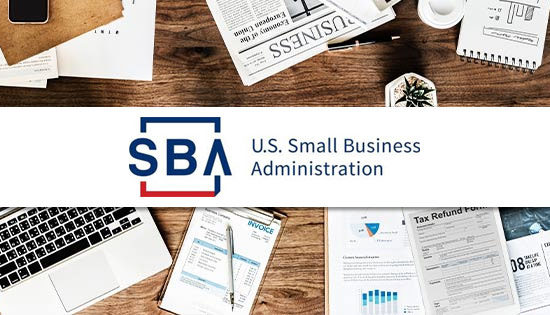Release:
GDOL Encourages Georgians to Watch for Identity Theft
JANUARY 28, 2021
Atlanta, GA – Due to the enormous increase in unemployment claims filed this year, millions of claimants around the nation will be receiving 1099-G tax forms detailing taxable unemployment payments issued during 2020. These forms will include any state and federal deductions if claimants selected the withholding option. However, some individuals may receive a 1099-G tax form who did not file an unemployment insurance claim this year and are victims of identity theft. Labor departments across the United States are addressing these potentially fraudulent 1099-G tax forms.
This week, the Georgia Department of Labor (GDOL) is printing over 1.1 million 1099-G tax forms for claimants who received benefits during 2020. More than 350,000 claimants opted to receive an electronic copy only. Although the GDOL has made numerous efforts to combat fraud, it is possible that victims of UI fraud may receive a 1099-G from the agency. If an individual receives a 1099-G tax form and did not file a claim themselves in 2020, the potential fraud will need to be reported to the GDOL. The agency will investigate the report of identity theft, make any necessary adjustments to the individual’s 1099-G, if applicable, and resubmit the amended 1099-G tax form to the Internal Revenue Service. The GDOL is currently developing the secure form for reporting potential 1099-G tax fraud and will post the reporting process on its website by February 15, 2021.
“Our teams are battling UI fraud on all fronts as we continue to build out the many new programs implemented by Congress last year, particularly the Pandemic Unemployment Assistance (PUA) Program,” said Commissioner of Labor Mark Butler. “We are asking Georgians to be vigilant of their credit information and help us combat the fraudsters who are unlawfully taking funds from the UI program. This is a critical issue that is plaguing labor departments across the United States involving local, state, and even international criminals at times.”
The GDOL also encourages victims of identity theft to:
- File a police report with your local police department. Obtain a copy of the report that you can provide to creditors and credit agencies.
- Change passwords on your email, banking, and other personal accounts.
- Make a list of credit card companies, banks, and other financial institutions where you do business. Tell them you are a victim of identity theft and ask them to put a fraud alert on your account.
- Get a copy of your credit report and dispute any fraudulent transactions. You can request credit reports online from the 3 major credit reporting agencies
- Equifax: 800-349-9960 or freeze your credit online
- Experian: 888-397-3742 or freeze your credit online
- TransUnion: 888-909-8872 or freeze your credit online
- Place a fraud alert on your credit file. You can do this by contacting just one of the credit agencies to add an alert with all three agencies.
- Report identity theft to the Federal Trade Commission (FTC). The FTC has a wealth of information for identity theft victims, including assistance with a recovery plan. https://www.identitytheft.gov 877-438-4338
- If you suspect that someone is using your SSN for work purposes, contact the Social Security Administration at 800-772-1213 to report the problem. They will review your earnings with you to ensure they are correct.
- Consider filing a complaint with the US Department of Justice National Center for Disaster Fraud (NCDF) https://www.justice.gov/disaster-fraud/ncdf-disaster-complaint-form
- Let the IRS know you are a victim of identity theft by filing the File Form 14039, Department of the Treasury – Internal Revenue Service Identity Theft Affidavit, with the IRS. More information can be found here: https://www.irs.gov/individuals/how-irs-id-theft-victim-assistance-works
The GDOL issued over $238 million last week to Georgians as the agency continues to implement the multiple phases of the Continued Assistance Act (CAA) included in the Consolidated Appropriations Act of 2021 providing extended benefits for claimants on PEUC and PUA. The payments included benefits for regular Unemployment Insurance (UI), Pandemic Unemployment Assistance (PUA), Pandemic Emergency Unemployment Compensation (PEUC), Federal Pandemic Unemployment Compensation (FPUC), State Extended Benefits (SEB), and Lost Wages Assistance (LWA) payments.
The GDOL is continuing to develop and implement the system changes needed to reprogram our UI system to issue payments to those eligible for the 11-week extensions provided by the CAA based on US Department of Labor requirements. The additional requirements must be integrated into the GDOL systems before eligible payments can be released. These requirements include additional proof of employment and self-employment verification for PUA claimants, increased identification verification requirements, job refusal and failure to return to work reporting capabilities, additional fraud detection tools, and additional changes to the PEUC & PUA programs.
The GDOL continues to update its website and social media platforms with up to date information on the implementation of the CAA and next steps for claimants. The GDOL encourages claimants to continue to request weekly payments for those who have exhausted benefits or are waiting on determinations on eligibility. Determinations are continuing to be issued for claimants awaiting eligibility decisions when a job separation is other than lack of work or includes other potential issues that can affect eligibility, such as receipt of severance or retirement pay, refusal to accept suitable job offers, or failure to return to work. All eligible payments will be issued when a decision on eligibility is released, including any additional weeks of benefits a claimant could potentially be eligible for with the implementation of the new program extensions.
The GDOL has paid almost $17.6 billion in state and federal benefits since the beginning of the pandemic in March of last year. Since week ending March 21, 2020, 4,333,258 regular UI initial claims have been processed, more than the last nine years prior to the pandemic combined (4.0 million). Last week, regular UI initial claims totaled 28,016, down 7,896 over the week. Since the beginning of the pandemic, 347,012 PUA claims have been processed.
The sectors with the most weekly regular UI initial claims processed included Accommodation and Food Services, 6,064, Health Care and Social Assistance, 3,145, Manufacturing, 3,052, Administrative and Support Services, 2,813, and Retail Trade, 1,880.
The number of initial unemployment claims filed throughout the United States for the week ending Jan. 23, was 847,000, a decrease of 67,000 from the previous week’s revised level of 914,000.
Today, over 170,000 jobs are listed online at EmployGeorgia.com for Georgians to access. The GDOL offers online resources for finding a job, building a resume, and assisting with other reemployment needs. Resources for reemployment assistance along with information on filing an unemployment claim and details on how employers can file partial claims can be found on the agency’s webpage at dol.georgia.gov.
For more information on jobs and current labor force date, visit the Georgia Labor Force Market Explorer at explorer.gdol.ga.gov to view a comprehensive report.











